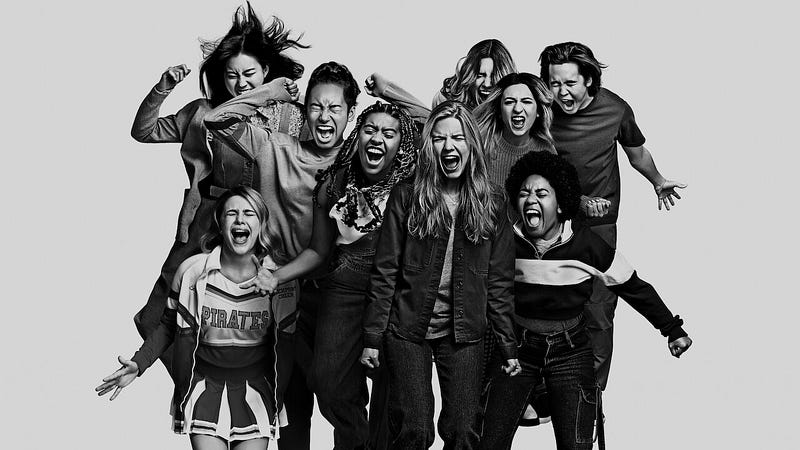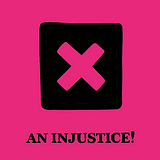‘Moxie’ Taught Me You Don’t Have To Be Perfect To Be a Feminist
You don’t even have to be a woman

You don’t even have to be a woman
How many times have you identified with a woman’s issue and haven’t spoken up because you thought you weren’t qualified enough?
Or that you knew you’d made a similar mistake in the past which automatically disqualifies you from speaking up about it now?
Amy Poehler’s Moxie, airing now on Netflix, shares a very important message that feminism doesn’t expect perfection. You can make mistakes and hurt people along the way, but as long as you keep learning, growing, and making sure you don’t consciously repeat them, you can still be a feminist.
Here are five lessons in feminism I learned from this very inspiring movie.
1. You don’t have to know everything about every issue
Lack of awareness is never an excuse for inaction.
You’re not supposed to be an advocate for the rights of women from all over the world. Yes, inclusivity and intersectionality are important, but that doesn’t mean your story is invalid.
“Other women have it worse” might be true, but not knowing about them doesn’t make you a bad person.
Feminism is complex as is, and with so many different issues from all communities, races, and cultures, it’s nigh impossible for one person to be aware of it all. You might end up excluding someone unintentionally by a statement or claim, but that’s alright.
Being all-knowing isn’t a prerequisite to be a feminist. However, accepting your mistakes and taking active steps to make sure you don’t repeat them is.
You can always learn. You can keep changing your narrative as you grow into a better person.
Feminism doesn’t expect perfection. You can make mistakes and hurt people along the way, but as long as you keep learning, growing, and making sure you don’t consciously repeat them, you can still be a feminist.
2. You don’t have to be the hero to be a voice of change
You can still spark your own revolution from the sidelines.
You don’t have to make public appearances, organize rallies, bash up the bad guys, or even be visible to make a difference. You just have to know what your message is, how you wish to convey it, and keep repeating it long enough so it attracts the right kind of audience — your tribe who can bring your vision to fruition.
Heroes aren’t only defined as the ones who change lives. Cheering them on, taking part in their efforts, writing their stories, and sharing that inspiration with the world is no less heroic.
“Change often starts with the smallest of whispers. Like-minded people building it up to a roar.”
― T.J. Klune, The House in the Cerulean Sea
3. You might lose friends along the way if you stand for a cause
But this doesn’t make you a bad person.
Wanting something different from the people you’ve grown up with is bound to happen sooner rather than later. This is an inescapable consequence of growing up.
All the people around you might not respond to change the same way you do. That doesn’t mean they are bad or you are unlikeable. It just means every person has a different threshold before they are spurred into action. The least you can do is to be considerate of the problems they might be facing and be more willing to forgive.
Many women find it easy to judge other women for playing giving in to patriarchy, encouraging it even. It helps to remember that they are victims too. Victims of a system that constantly teaches women thinking for themselves is wrong; that wanting something for their own is akin to blasphemy.
Not every person would be as receptive to accepting new ideas as you are. Accept this as an inevitable consequence of declaring yourself as a feminist.
They might come around someday and see your point. But chances are, they would never. Either way, be kind to them and to yourself. You can’t blame people for things not in their control.
4. You can learn to be intersectional
Not everyone is raised being open-minded to people of other cultures and races. But feminism is nothing if not intersectional.
As this article on USA Today puts it, “If feminism is advocating for women’s rights and equality between the sexes, intersectional feminism is the understanding of how women’s overlapping identities — including race, class, ethnicity, religion and sexual orientation — impact the way they experience oppression and discrimination.”
Kimberlé Crenshaw, an American law professor who coined the term in 1989 explained intersectional feminism as, “a prism for seeing the way in which various forms of inequality often operate together and exacerbate each other.”
If you’re a feminist, it’s important to consider the problems of women of all races and colors. As Alia Dastagir writes in USA Today, “A white woman is penalized by her gender but has the advantage of race. A black woman is disadvantaged by her gender and her race. A Latina lesbian experiences discrimination because of her ethnicity, her gender, and her sexual orientation.”
The best news is: even if you’ve never considered the rights of someone who looks different from you, it’s never too late to learn. In the end, feminism is about the rights of womxn irrespective of how they look. The sooner you accept this, the better you can put forward your message.
Feminism is nothing if not intersectional.
5. Men can (and should) be feminists too
In our urgency to have our voices heard, we feminists might end up alienating men, believing them to be the perpetrators of patriarchy and leaving them out from this struggle to make our voices heard.
But men who appreciate the gravity of the issues and are willing to take up an active role in resolving them can be valuable allies.
For women, dismissing all men as misogynistic is never a good move. And for men, they can be more proactive in helping amplify the voice of dissent.
They can do better than simply “support.” They can act.
“My own definition is a feminist is a man or a woman who says, yes, there’s a problem with gender as it is today and we must fix it, we must do better. All of us, women and men, must do better.”
— Chimamanda Ngozi Adichie, We Should All Be Feminists
The bottom line
Everyone can be a feminist, even if they didn’t start their journey on the right nerve.
You make mistakes, you stumble, you pick yourself back up and keep walking. Your past doesn’t define you. Where you want to reach and what you’re willing to sacrifice to get there does.
If you’ve judged women too harshly or stood as a mute spectator when something horrendous was happening in front of your eyes, you should forgive yourself.
Not everyone is perfect, but that doesn’t mean everyone can’t be a feminist.
“I embrace the label of bad feminist because I am human. I am messy. I’m not trying to be an example. I am not trying to be perfect. I am not trying to say I have all the answers. I am not trying to say I’m right. I am just trying — trying to support what I believe in, trying to do some good in this world, trying to make some noise with my writing while also being myself.”
― Roxane Gay, Bad Feminist
I create content in different forms related to self-improvement, body-positivity, and feminism on YouTube and other platforms. Join my email list to make sure you don’t miss out on anything new.

